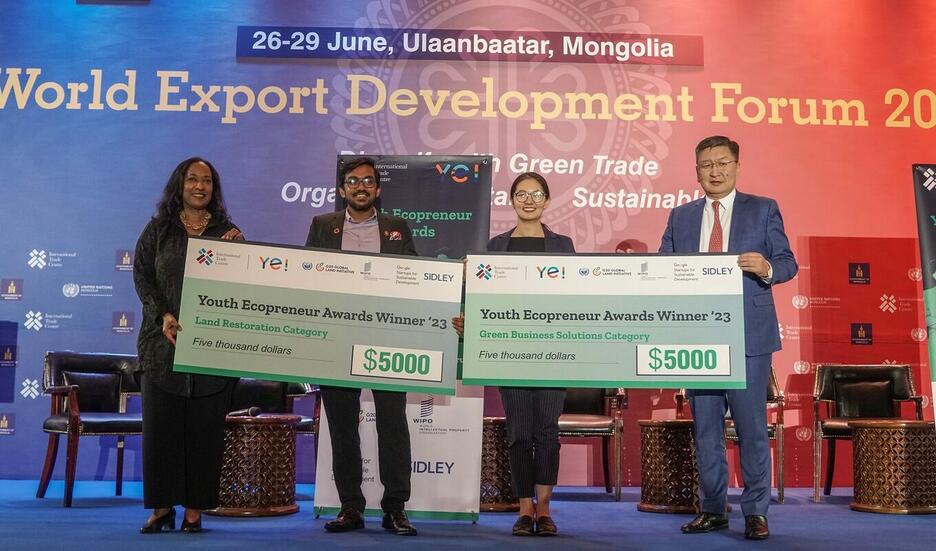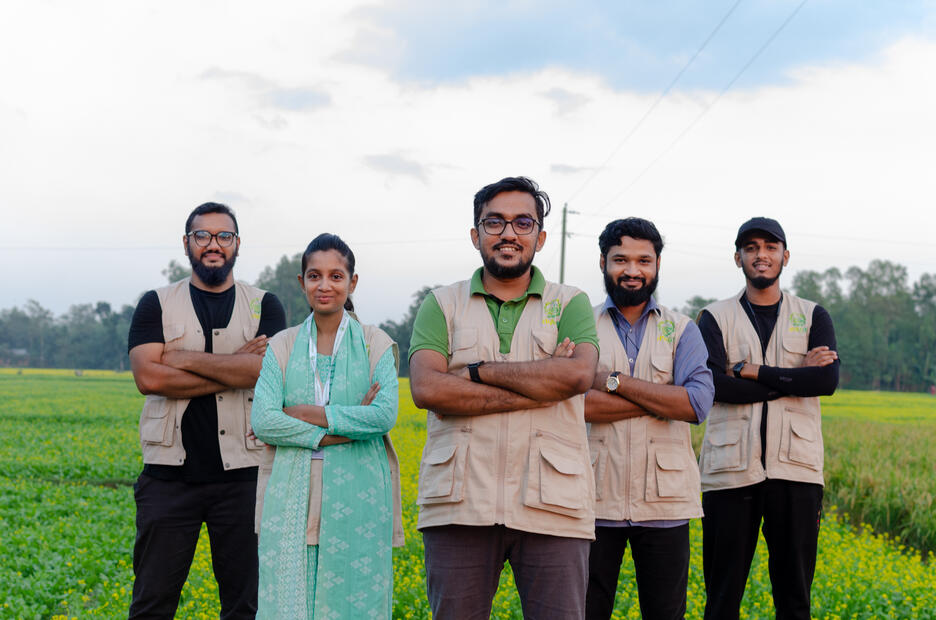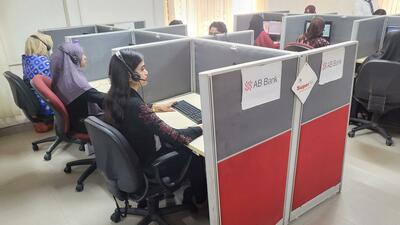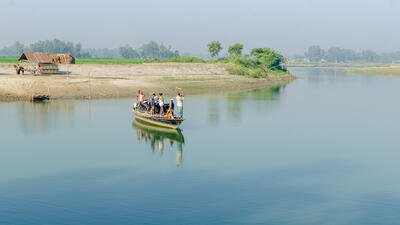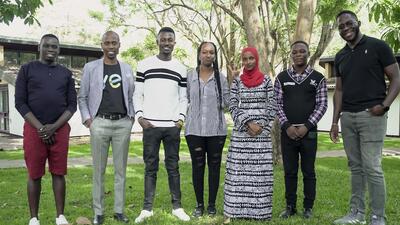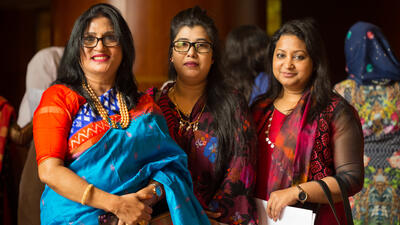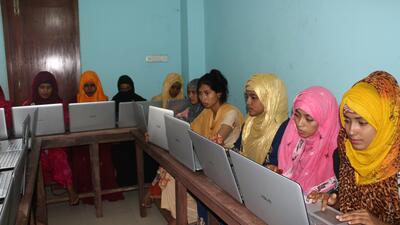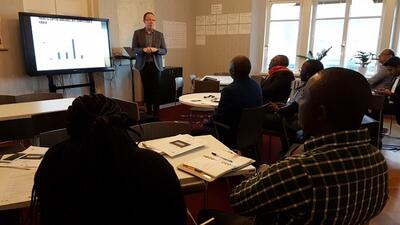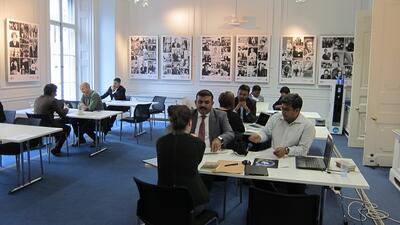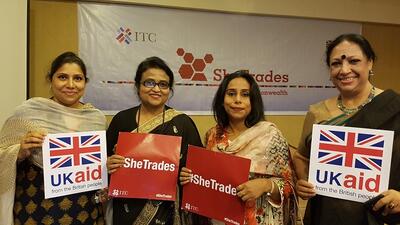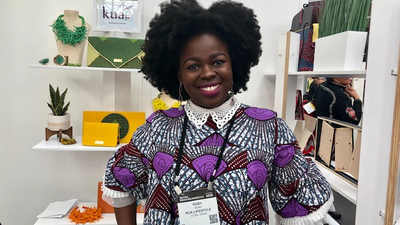
A winning idea: Agri-technology invigorates farms in Bangladesh
Mashrur Hossain uses technology to alleviate poverty, strengthen food security, and fight climate change in his home country, Bangladesh.
Read about a young engineer’s AI-based solution that could change the lives of millions of smallholder farmers, even beyond Bangladesh’s borders.
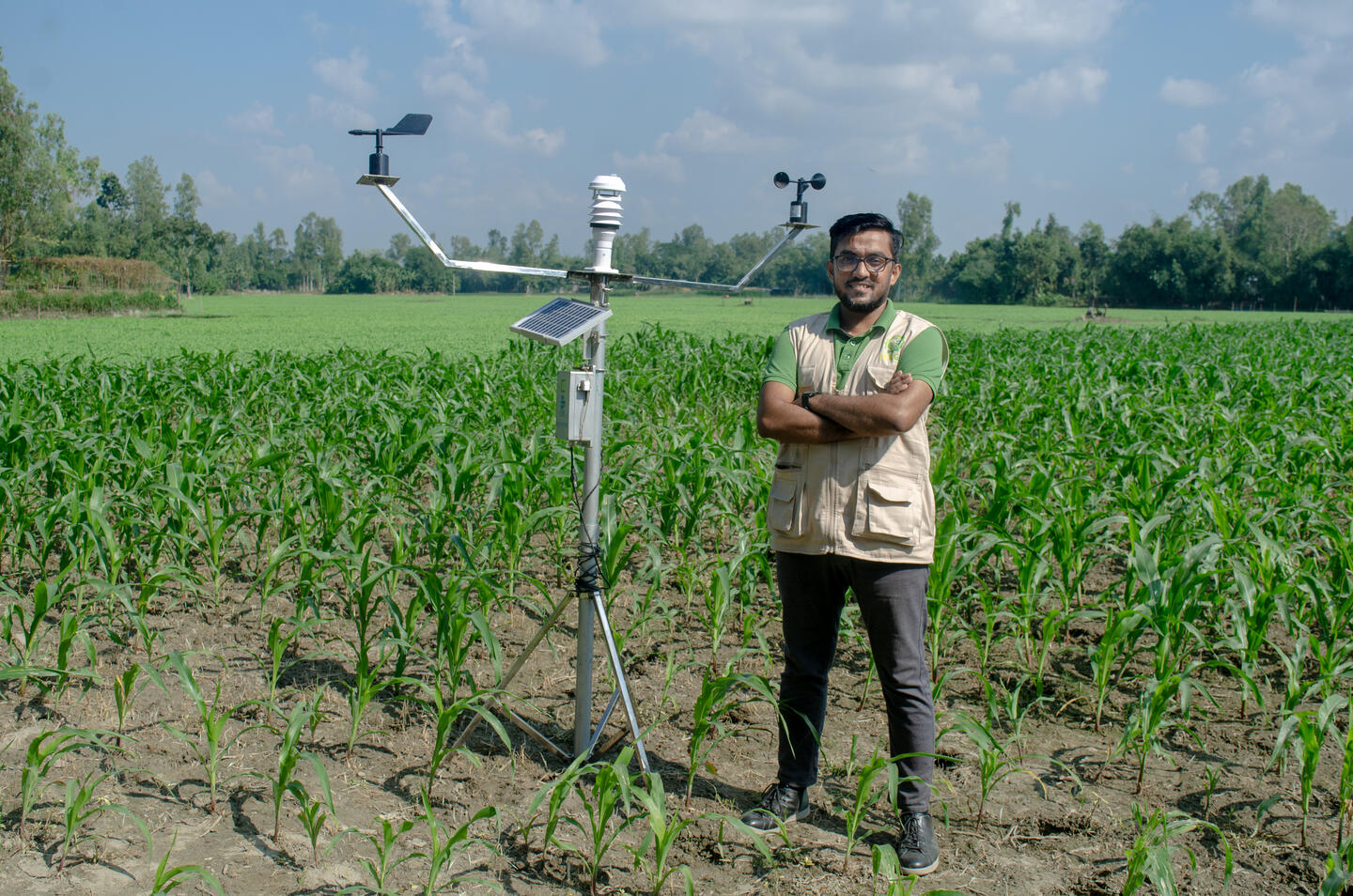
Being a farmer can be frustrating. From hard work to low recognition and low profits, farming does not always come easy. So much that you might want to quit the sector and never look back.
This is what Mashrur Hossain’s parents did. Naturally, they never wanted their kids to get involved in agriculture as they saw no future in it.
Mashrur finally understood the reasoning behind this when he started working for the government following his studies in engineering.
The young graduate realized that farmers were facing overwhelming financial insecurity, as their crops could fail and leave them without any income. Mashrur decided then and there that this needed to change.
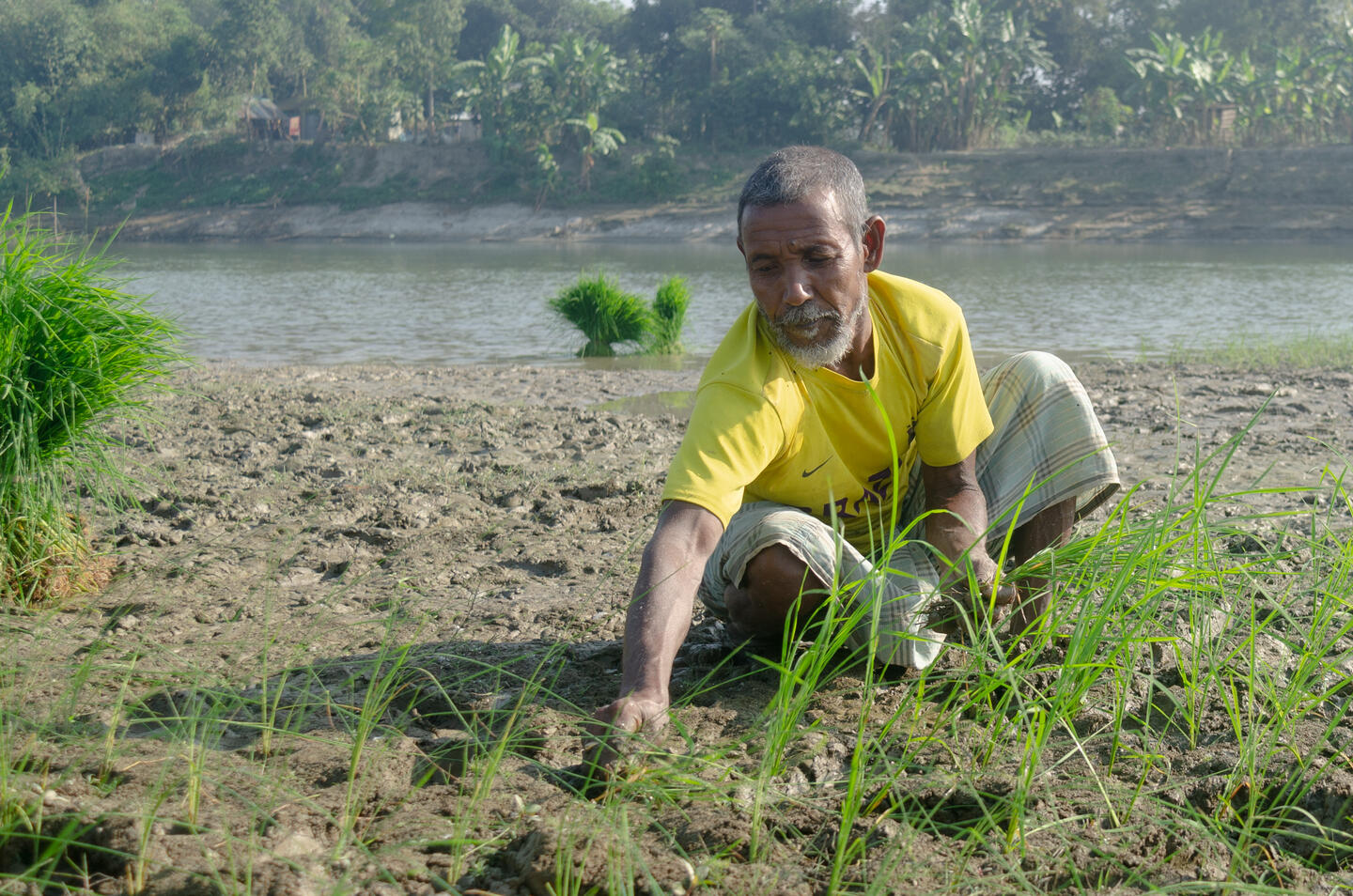
Agriculture remains the largest sector in Bangladesh in terms of employment, with 46% of the labour force engaged in this sector and almost 16 million smallholder farmers, making it a priority for the government for food security and hunger prevention.
According to Mashrur, this huge workforce has difficulties in understanding the soil, weather, and market patterns. The impacts of climate change are making this situation even harder, with erratic weather patterns becoming the norm.
“Simply put, they don’t have access to training and actionable data to make a decent living. Hence, they are more likely to suffer and give up this traditional profession.”
To solve the problem, in 2015 the then 24-year-old quit his job at the foreign ministry and started his research and development (R&D) engineering firm, which quickly turned into a fully-fledged global enterprise.
The goal: connecting farmers to the ecosystem with actionable data at the right time so they can make informed decisions.
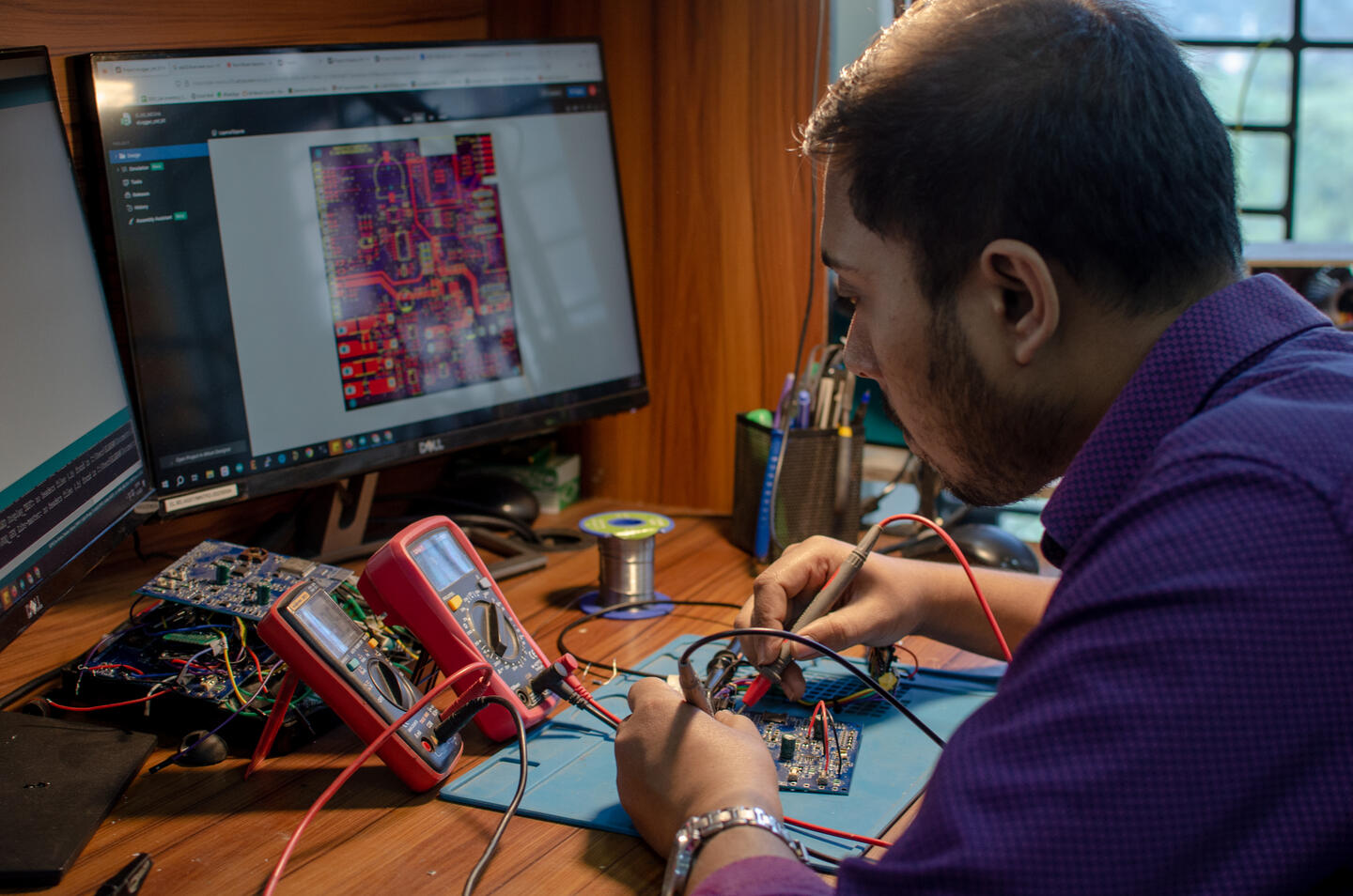
In 2019, the agribusiness enthusiast had a breakthrough and developed iPAGE as a home-grown technological provider to the challenges farmers are facing. iPAGE provides site and crop-specific digital advisory services to smallholder farmers for better productivity.
iPAGE started its journey as an agricultural information tech startup that provides electronic soil testing and weather based, digital agricultural advisory service.
"Information gaps on modern farming and technology, market demand, and lack of easy access to products/services (i.e., capital, input, insurance, buyer, etc.) are our farmers' three interconnected pain points. However, soon we realized that our farmers also needed access to low-cost capital, insurance, inputs, and a buyer network, but they didn’t have the data or connectivity to avail so.
Thus, we partnered with registered input vendors, banks, non-banking financial institutions, and local non-governmental organizations to connect them through a data-driven approach with these ecosystem actors in the agricultural industry.”
When COVID-19 hit in March 2020, it led to a catastrophic disruption in the national food supply chain, with harder access to necessary inputs for farming and rising costs. Mashrur explains that helping farmers mobilize their produce to the local market and revamping their cropping practice based on consumer needs became more demanding than ever.
“This is when we shifted our focus from only production practice optimization to demand-specific production schemes.”
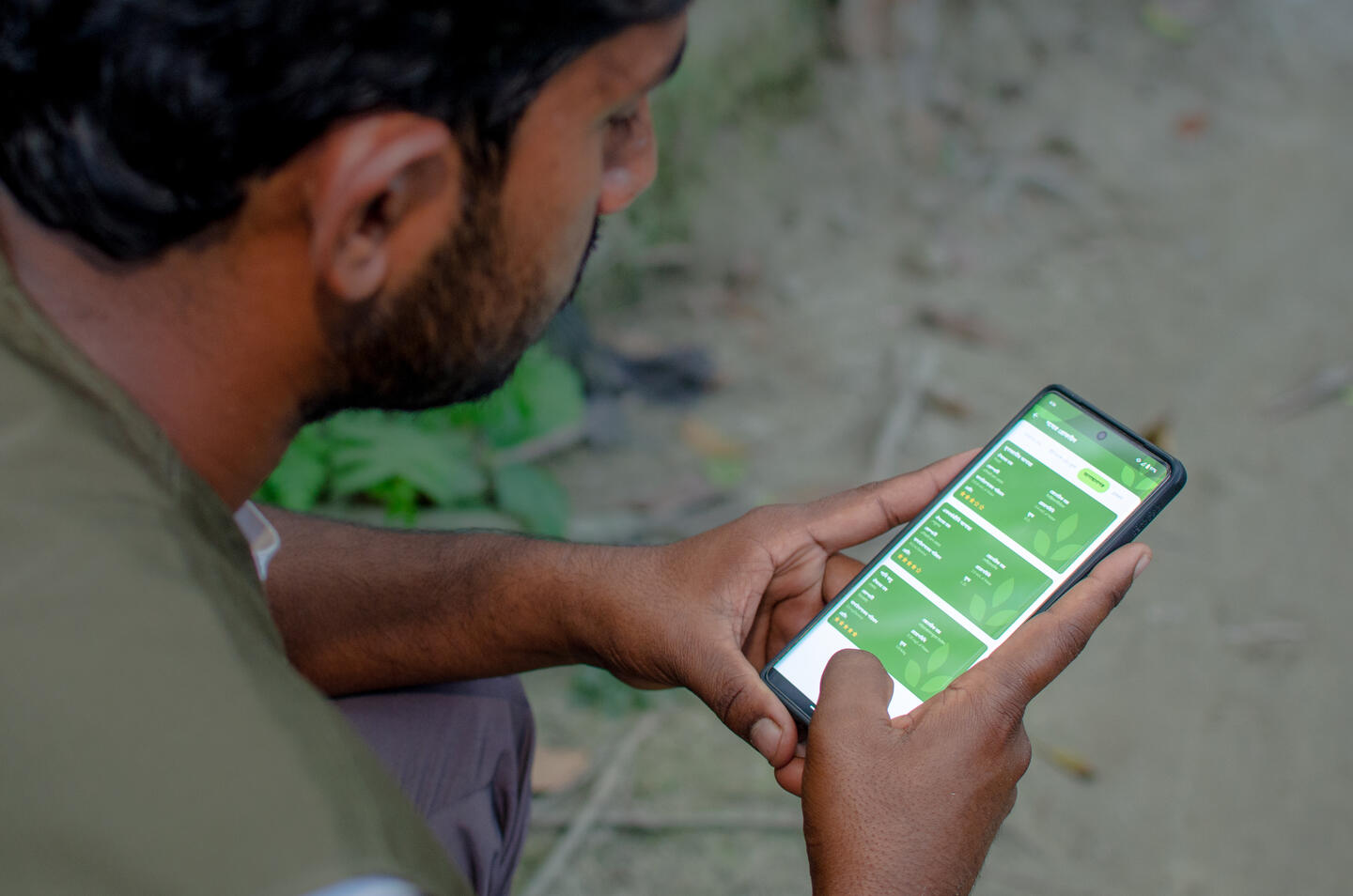
Video
Mashrur and his team developed an AI-enabled agricultural information system: apart from offering soil testing and advice, it enables farmers to connect with market purchasers, banks, insurers, etc., empowering farmers to cultivate their crops efficiently and enhancing their potential for profit.
How? Artificial intelligence generates actionable data and analysis for the farmer, for instance by triggering automatic voice calls or text messages tailored to the farmer's plot. This vast amount of agricultural data then helps link farmers with suppliers and service providers. So far, iPAGE has reached over 10,000 farmers.
“Let’s say 3,000 farmers are cultivating chili – this is a very weather-sensitive crop. Whenever our deployed weather stations are picking up a weather parameter, it will trigger a forecast message to the individual farmer, telling him or her exactly what to do next.
This makes their decision-making fast and precise. This would not be possible by human hand.”
After four years of trying the system, Mashrur has seen habitual and quantifiable change: farmers grow crops that prosper on their soil; fertilizer usage has dropped by 40% which has reduced CO2 emissions equalling +2 million kg; and finally, farmers have seen over 12% increased yields and almost 20% increase in sales for input and machine partners.
The manager of 32 employees is convinced that this holistic approach is essential to addressing the problems of Bangladesh’s agricultural industry at its core.
“We are working to shift the paradigm of our agriculture sector towards a state where our farmers would gain more profit through fighting climate change.”
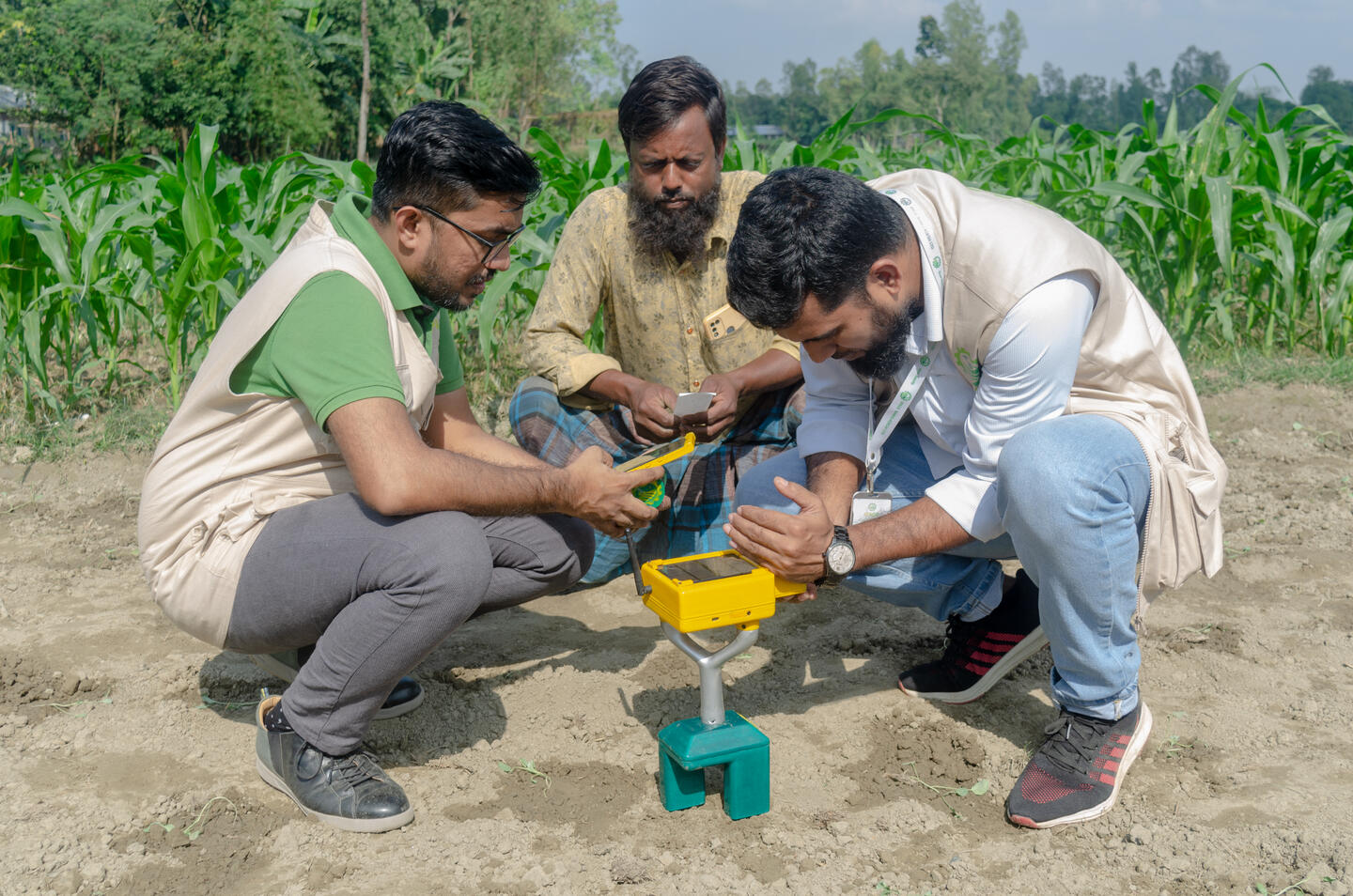
Challenges remain—and finding supportive, credible local partners to mobilize farmers is one of them.
“In addition, governmental agencies do not have any policies to leverage private-sector technologies that support farmers. This policy gap is another challenge we are facing.”
Mashrur relies on non-governmental organizations (NGOs) and competitions, such as the International Trade Centre’s Youth Ecopreneur Awards, to raise awareness. After having won the pitch competition in Mongolia in the summer of 2023, the World Intellectual Property Organization (WIPO) supported iPAGE in applying for several intellectual property right claims.
“Participating in these global competitions can lead to not just finance but also strategic resources, partnerships, and our words in the right ears.”
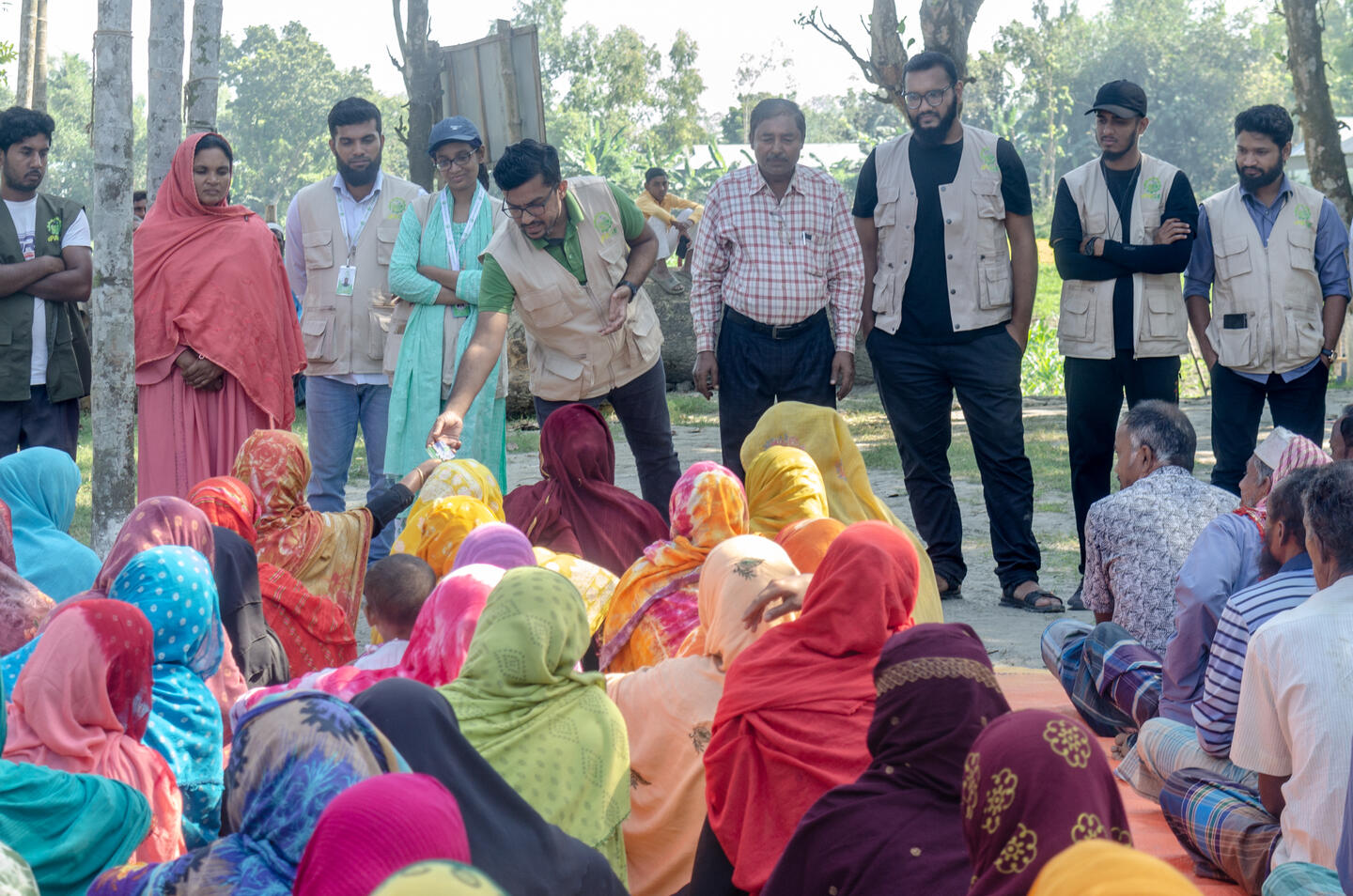
Mashrur’s ambitions are high: his goal is to capture 5% of the country’s smallholder farmer base by 2025. The more farmers, the more data; the more data, the more precision he hopes to deliver to farmers as well as to all essential ecosystem actors, like buyers, banks, insurers.
“We also plan to increase our focus on protecting our intellectual property.
We have several innovations that could offer solutions to farmers and ecosystem players beyond Bangladeshi borders. The quality of the delivery could deteriorate if not protected.”
In the long term, through iPAGE, Mashrur wants to facilitate at least 10% of the production of Bangladesh’s domestic grain demand, while looking at becoming an Impact Unicorn from South East Asia by 2028. A noble goal to which to aspire!
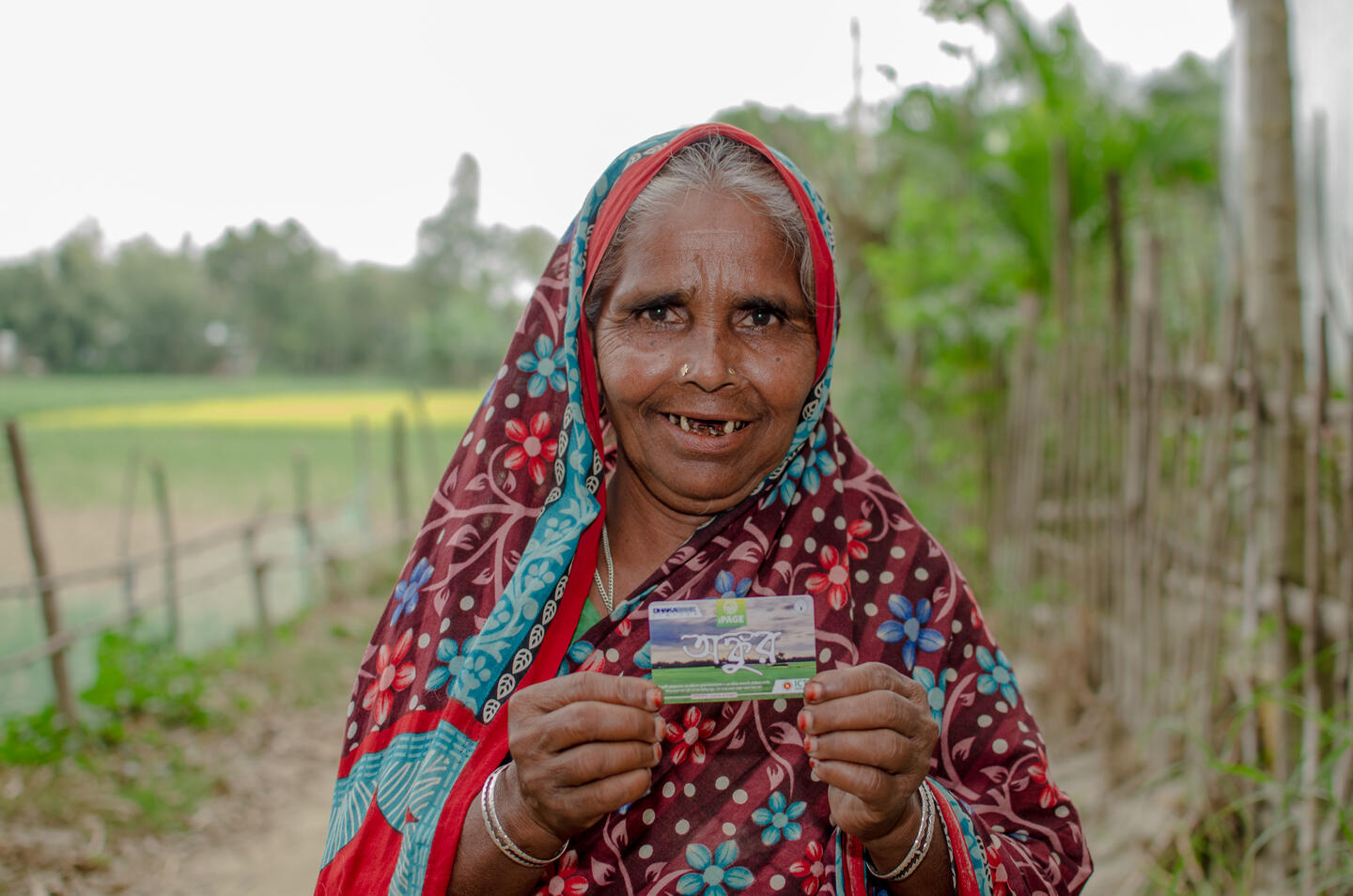
- Stand up and talk about your needs. No one will value and understand what you do if you do not communicate clearly.
- Be honest with yourself. What is your drive? No one in the world can inspire you, you must listen to yourself.
- Take the risk. Get out of your comfort zone and never fear to fail. Otherwise, there is no joy in winning.
By winning the International Trade Centre’s Youth Ecopreneur Award in the category of land restoration, the Bangladeshi company took home $5,000 in seed funding and will receive capacity building support to scale up their businesses. The prize packages are provided by the International Trade Centre, the G20 Global Land Initiative of the United Nations Convention to Combat Desertification, the World Intellectual Property Organization, Google's Startups for Sustainable Development programme, and the multinational law firm Sidley Austin.





